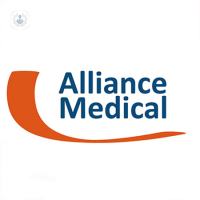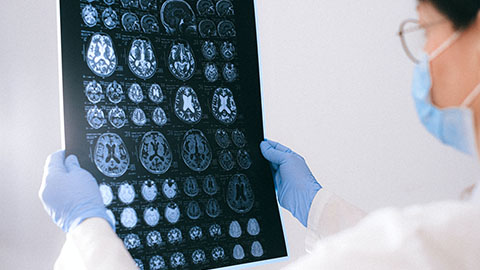MRI scan - 4 areas
This MRI scan of four areas of the body provided by Alliance Medical at Alliance Medical Marylebone which can be used to detect many neurological and musculoskeletal conditions. The tests can be used for all areas of the body, and is especially useful for detecting soft tissue problems, such as with nerves, muscles, tendons, and ligaments.
Is there anything I should inform the clinic of before the appointment?
If you have been referred to have an MRI scan, or you are choosing to book one for yourself, before you go ahead, please check the list below and inform the clinic if you have or are experiencing any of the following:
- You are or might be pregnant.
- You have a heart pacemaker fitted.
- You have previously had an artificial heart valve fitted.
- You have an electronic drug delivery device fitted.
- You have a cochlear implant.
- You have had any surgical procedures on your head.
- You have any metal implants in your body.
- You have any surgical clips fitted.
- You have had a capsule endoscopy.
- If there is a possibility that you have metal fragments in your eyes, such as working with metal at high speed, or from an injury.
If there is any possibility, an X-ray may be necessary as the MRI scanner emits powerful magnetic rays which can cause injury by moving metal fragments that are in the body.
How should I prepare for the MRI appointment?
Before you arrive for the scan, the clinic will send you a set of questions such as those above, to ensure that you are safe to proceed with the scan.
In most cases, you will not be required to make any special preparations before the scan, such as changes to your diet, not eating in the hours before, or making changes to your medication. However, if any changes are required, you will be informed before you arrive, so arrangements can be made.
If you wish to, you may bring a friend or companion with you for the scan to help you to feel more comfortable. Please ensure that you arrive in plenty of time before your scheduled appointment time, and bring your appointment letter with you.
In most cases, you will not be required to make any special preparations before the scan, such as changes to your diet, not eating in the hours before, or making changes to your medication. However, if any changes are required, you will be informed before you arrive, so arrangements can be made.
If you wish to, you may bring a friend or companion with you for the scan to help you to feel more comfortable. Please ensure that you arrive in plenty of time before your scheduled appointment time, and bring your appointment letter with you.
What should I wear to the MRI appointment?
You must ensure that you don't wear any jewellery to the appointment, and no clothing that has any metal on it such as metal buttons or zips.
Do not wear a watch or any similar device for the scan.
Do not wear a watch or any similar device for the scan.
What happens during the MRI scan?
Please bring your appointment letter with you to the appointment. After you have checked in at the reception, a member of the team will explain the procedure to you, make sure that you are feeling relaxed and comfortable, and ask you to fill out the safety questionnaire. You will be provided with a space to leave your personal possessions and to change into a gown if this is required.
The radiography team will always be near to answer any questions or to assist you if you are feeling any discomfort at any time.
A gadolinium contrast medium may be necessary to be injected before the scan, depending on the information that is needed. This helps the radiography team to see more from the scan if this is required.
The contrast medium usually either has no side-effects or mild side-effects, including nausea, itching, dizziness, and headaches.
The procedure consists of several scans lasting a few minutes each, with the whole procedure lasting between 15-60 minutes. The radiographer can see you the whole time, and is on hand to help in case you are feeling uncomfortable.
The radiography team will always be near to answer any questions or to assist you if you are feeling any discomfort at any time.
A gadolinium contrast medium may be necessary to be injected before the scan, depending on the information that is needed. This helps the radiography team to see more from the scan if this is required.
The contrast medium usually either has no side-effects or mild side-effects, including nausea, itching, dizziness, and headaches.
The procedure consists of several scans lasting a few minutes each, with the whole procedure lasting between 15-60 minutes. The radiographer can see you the whole time, and is on hand to help in case you are feeling uncomfortable.
Will I need to have an injection for the MRI?
In some cases, a gadolinium contrast medium may be required for the scan. This allows the radiography team to see the flows inside your body, such as blood flow. This is not always required, and depends on the area of your body that is being scanned, and what the radiography team are detecting. You will be informed ahead of time if you require an injection.
The gadolinium contrast medium usually has little to no side-effects. Possible side-effects are mild and may include nausea, feeling dizzy, headaches, and itchiness.
The gadolinium contrast medium usually has little to no side-effects. Possible side-effects are mild and may include nausea, feeling dizzy, headaches, and itchiness.
What happens after the MRI scan?
Following the scan, you can return to your normal activities without restrictions. This includes eating, drinking, driving, or physical activity.
If the gadolinium contrast medium was required, you will be monitored for 15 minutes following the procedure to check that you are not experiencing any side-effects.
If the gadolinium contrast medium was required, you will be monitored for 15 minutes following the procedure to check that you are not experiencing any side-effects.
When will I get the results of my scans?
The radiographer will examine the scans following the procedure, and send the results to your doctor or consultant in the days following the scan. Only your doctor or consultant can discuss the results with you, not the staff at the clinic.
What kind of MRI scanner is used?
At the Alliance Medical Marylebone, an ASG Paramed MRI Open Scanner is used. This is different to a standard MRI scanner in which you are able to sit or stand for the scan, rather than being required to lie down. This is particularly beneficial to patients who may have difficulty laying down.
Procedures
Non-refundable product
You have 90 days to use the service
Legal terms and Privacy policies


